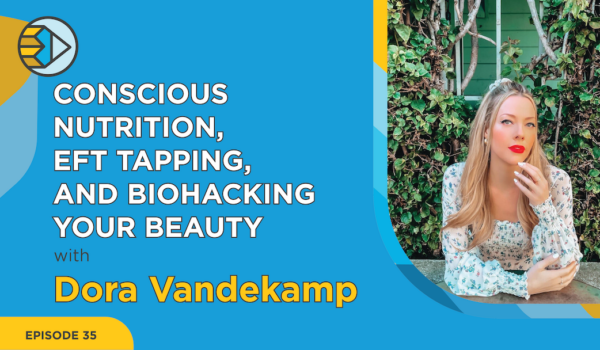
EP 40: Study for Exams Using Active Recall
Active learning is just as it sounds. In order to truly learn a new piece of information, you need to somehow trick your brain into working on it, activating new neural pathways that make it easy to access when needed. This will involve solving problems from scratch using the information you do have. But what if you don’t know where to start without looking at notes, slides, or answers? This week on Episode 40 we talk about about a way to do active recall when you have no idea where to begin.
Looking for study tips, help with essay writing, or advice on how to be a better student? Welcome to The Homework Help Show, a weekly show where we teach, assist, and offer valuable insights for student life. From study hacks to writing tips, discussions about student mental health to step-by-step guides on academic writing and how to write a resume, we’ve got you covered. Want your questions answered? Write them below or join the conversation on social media using the hashtag #askHHG
TRANSCRIPT:
Cath Anne: [00:00:00] Hi guys and welcome back to our channel. My name is Cath Anne and this is episode 40 of the Homework Help Show hosted by Homework Help Global.
[00:00:17] I am sure I don’t have to remind you that exams are coming up.
[00:00:22] Have you ever been in a situation where you’ve studied really hard, you’ve been diligent all semester, you’ve attended every class and you’ve even pulled all nighters to make sure that you get the right information for your test the next day and then once you get to the test you draw a blank and you have no idea what the professor is looking for. Super frustrating right? You’ve come all this way you’ve done all this work. But for what? And you’ve studied so you would think that you could do well in the exam. It just doesn’t make sense. Well this is what we are going to talk about today.
[00:00:57] If you are experiencing this I hate to break this to you but you haven’t actually learned the material in the first place.
[00:01:06] OK, I know you’re probably yelling at the screen or saying “What?! What are you talking about?” I know. I know. It sounds really difficult to hear especially if you study for long hours. You would think you would have learned something but just hear me out.
[00:01:24] Let me ask you a few questions. Do you attend class regularly and listen to your professors thoughtful logical explanation of the content and think “oh yeah, this makes sense?” Do you attend class regularly and review your notes? Do you do practice questions in your textbook with the open book by your side and the answers right by your side thinking that you’re doing the best to practice what you can and prepare for an exam? You’re not alone. These are strategies that we have been taught to implement into our study routines. However they are not always the most effective. Unfortunately the reason for this is because all of these activities are passive. So in other words, you are intaking information but you’re not actually grappling with it or working with the new material in order to understand it. Although you might recognize similar material and be able to regurgitate it in a specific set of circumstances, you’re not going to be able to do much more than that and particularly if you are working or learning in a field that is has a hands on component you’re certainly going to want to be able to apply the material in a variety of contexts. And, this is why listening to lectures and reading through textbooks is not necessarily the most effective. When we see an example of related information, it might lull us into a false sense of security thinking that we do know the answers and that we are able to recall them in different contexts. However, without the diagrams lecture notes or even the classroom itself we might not be able to recall that information effectively.
[00:03:14] So that is why today we wanted to discuss the process of active recall and how it can help you to study for exams and be a more effective student active learning is just as it sounds. In order to truly learn a new piece of information you must engage with it and trick your brain into working with it. This activates new neural pathways in the brain which creates new space in the brain for new information. This will involve solving problems from the ground up. You have to work with the information in order for it to become ingrained in your brain and that means working with information without the help of notes slides or lectures or even the answers. So let’s talk about how you can incorporate active recall into your study routine. Even when you have no idea where to begin because there might be times that you might see a question and you might not even know where to start. So let’s start there and we’ll build upon that. There are a variety of ways that you can incorporate active recall into your study routine and I’m going to give you a couple of steps about how to do that.
[00:04:26] Step one : copy it all down. So you’re in class. The T.A./professor/instructor puts a question up on the board – record that. Write that down in your notebook. You can also look online to find different questions depending on what discipline you are in. You can also look at old tests you could look in your textbook but just make sure that you’re not also looking at the answers because we want to start with a blank slate so your best way to do this is to write everything down. Don’t use a computer use a pen and paper or pencil and write everything down. And don’t worry at this point if you don’t understand this is part of the process.
[00:05:08] Step number two: Start small. Start by breaking a problem down and go through step by step. Break down each component of the problem, write out equations, drawing out all of the concepts that you have learned thus for far. You want to look at each variable each part of the equation and eventually piece it all together in a solution. Write out formulas that you have learned and work diligently with the question putting everything you know into the question even if you don’t get the correct answer. This is going to be a step towards your learning process and remember that is what we’re looking for today. We’re looking for active engagement with information as opposed to passive reception. You can even begin with easier questions and work your way up to more challenging concept. That is probably your best bet because then you will not get frustrated. Trust me, it is going to be a bit of a frustrating process because you will not necessarily know the answer to every question and it will take some time for this information to become ingrained into your brain. However this is the process and trust this process.
[00:06:23] Step number three: do active recall. Once you become familiar with all of the steps involved in solving this type of a problem engage in active recall by taking a new problem and trying to figure it out from the ground up. You can still break it down in steps. Write out all the formulas and everything that you think you need to solve the problem and come to a solution. And again make sure you are not looking at the answer. Also try doing so without the help of any supplementary aides so maybe you have a cheat sheet. Or maybe you have a reference page that you are looking at in order to get some information in regards to the formulas you would need for this active recall process. Make sure that you’re kind of setting those things aside until you can wrap your head around the concept and come to somewhat of a solution. If you really do get stuck you can make use of those resources but the less you make use of those resources the better you are going to be able to adapt and to be able to do this process in a time crunch on an exam. Now this is not just going to be a one time process. This is going to be something that you’re not going to want to do throughout the course of a semester when you are studying. Write down questions as they come up and almost create a sample test for yourself. So as you’re going through each step in each class in throughout the semester you can be looking at ways to practice as you go along by recording questions and making a sample test for yourself to plan and to study in advance for the exam. So again the key here is to replace passive acceptance of information with active recall. So you’re really delving in and engaging with the material even if you aren’t familiar with that particular question. Work your way through it write it down and take a question on step by step. That is going to be the easiest and most effective way to acquire new learning.
[00:08:28] So another way to do active recall is to really hone in on the information that you are learning. Let me explain. Have you ever become frustrated at another student because they seem to have spent a very small time in studying when you have been cramming for weeks and weeks and weeks? Well this is likely because they have honed in on specific information that they believe the professor will be putting on the exam and you may have been studying a bit too broad. So what you want to do when you are studying for an exam is to hone in on very specific information that you think will be on the exam and study that information. You can do this by asking the professor questions about what is going to be on the exam. You can look at key scenes that arise throughout the course of the semester. If there is a topic that the professor keeps going back to it is a good bet that that will be on the exam. You can look through your textbook as I mentioned and look for practice questions because those tend to be the types of information that will arrive on the exam. You can consult with former students of that class and see if they remember anything that may have been on the test in a year before. You can also attend your library and ask if they have any samples of exams and from years past. And this is a really great way to acquire information about the exam and just learn what types of questions will be on a certain type of exam and other idea is to create an online test for yourself to begin to. Test your knowledge using an online application. There are many applications out there that you can make your own tests. And that will be a great way for you to practice the information that you are learning.
[00:10:28] Okay so that’s it for me this week guys. I hope you have good luck on your exams. Remember to do active recall when you are studying and plan your studying time. Make sure to check out all our other videos on facing your exams. We have a few. I hope this video was of benefit. Let us know if you have any questions in the comments below and if you do make use of active recall we’d also love to hear if you have any suggestions for study techniques or suggestions for future episodes. If you’re looking to check out any of our other content make sure to jump into the description box below. All of our social media platforms are linked there for you. If you did like this video please give it a thumbs up and subscribe to our channel so you don’t miss out on any content. Alright guys I will talk to you next week. Have a great week. Talk soon and take care.
Share:

